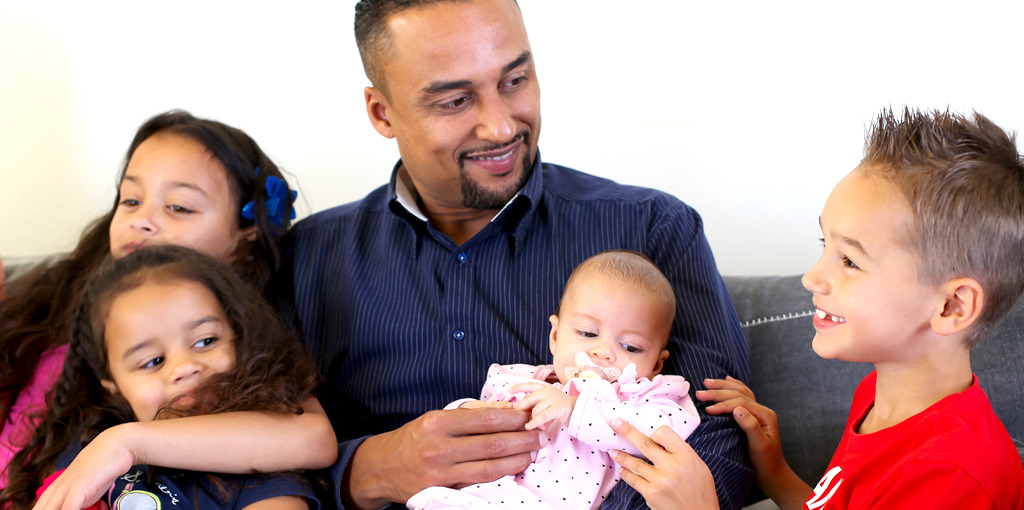Good parenting skills

Good parenting skills
Most parents want good parenting skills and they probably also want to know how to discipline children. Parenting teenagers can be particularly tricky. Are you concerned that your children don’t talk to you? . . . Don’t open up to you? . . . And then when you go in and ask questions it feels like you’re snooping or you just get grunts? Good parenting skills involve more listening than telling.
For example, rather than asking - “How do I discipline my child?”, perhaps you could ask, “How can I communicate with my child?”
Having the goal to be fully present and connected as a parent can be a great start, yet it’s not always easy in the busy lives we lead. As a general rule, children are flexible and can cope if we take the time to explain that we are busy and will give them our attention and presence at a later time – it works better when we develop a history of following up with our promises, then they know they can trust us.
Many parents struggle when their child feels pain because they do not want to see them suffer. In addition, their own childhood pain could be triggered, especially emotional pain As a way of dealing with this or possibly avoiding our own pain, we move into ‘FIX-IT-MODE’.
‘Fix-it-mode’ can come across as imposing to the child as we are imposing on them what we believe the child should do in these situations. For example, “I know what to do about this (sub-text ... you probably don’t...) and “You could/should do.../say.../try… or should not do.../say.../try...”
THIS IS NOT COMMUNICATING – IT IS GIVING ADVICE.
This is often not what our child needs or wants in the moment that they bring us a problem. This advice most often comes out of the fact that as parents we want to make it better or take the problem away for them; that is when the ‘fix-it-mode’ mode comes in or turns on. Yet, perhaps what is simply called for in this moment is to accept where they’re at and let them be - without judgment; this allows them to be with the pain they are feeling. Later on we can possibly explain that experiences are a consequence of choices, and they can learn to be responsible for themselves.
For the child, advice can often feel overbearing and controlling and they feel as if the parent doesn’t know what they are going through. Children and adolescents usually know well what their options are, they don’t need us to TELL them – they just want to be heard, seen and felt. A great help for parents here is to be curious – Ask don’t tell. It’s very tempting to give advice when we have so much life experience. But, it’s often not helpful; and who’s to say that your life experience is relevant to what they are facing.
To improve communication with your child, you could consider asking questions like:
- “What’s that like for you when... (repeat what they have shared)?”
- “Tell me more about that . . . ”
- “How did it make you feel when . . . ?”
- “That’s not something I have experienced, tell me more about it etc.”
- “Mmm that’s not so easy – what do you think you could do about that?”
- “Oh that’s awkward/horrible/unpleasant/strange – what happened then?”
To ask these sorts of questions, we as parents have to be able to learn to accept the pain our child is feeling and the fact that we cannot fix it for them. This means we need to take the time to notice how we ourselves are impacted when our child brings us their problem or hurt.
When we become CURIOUS and not fixed in our opinions and we communicate with our child by asking questions, we often find they open up and tell us more than even they realised themselves. This ACT of EXPRESSION is healing as it makes them formulate their own experience into words, which means they have then revisited the experience rather than repressed it. Often after talking it through, they will come to their own resolution of the problem, meaning they will better know how to handle it when it next occurs. Allowing them to express and talk about how they feel also helps them to settle.
So good parenting skills actually mean we AVOID giving advice to children and allow ourselves to become genuinely CURIOUS; ASKING and LISTENING to how they feel in relation to what is happening to them. If we have confidence in them, take the time and make the space to connect with them, and explain the consequences of their possible actions, they are free to choose wisely.
When we engage with our children in this deeply respectful way, we find that they open up and share more of themselves with us, and the world around them. If we are open to it, we can learn from them when they share their experiences and this helps to build love and respect within the family.
This foundation of good parenting skills builds self-esteem, self-responsibility and teamwork in the family resulting in shifts in attitude and less need to discipline children.
Filed under
Parenting, Presence, Communication, Appreciation, Psychology, Feelings, Hurt, Confidence, Self-esteem



 PRINT PAGE
PRINT PAGE




